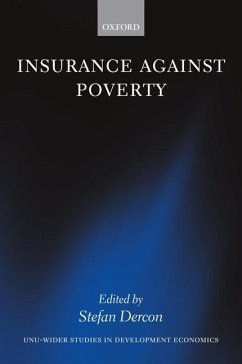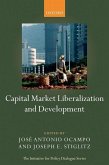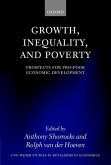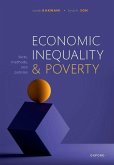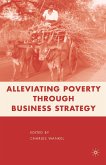Even more importantly, we have learned much about the large long-term consequences of these risks, which condemns many to persistent poverty and excludes them from economic growth. But there is much that can be done. The micro-level studies that underpin this book offer new insights on how effective public action could be more effective in protecting the vulnerable against persistent poverty. Policy should focus on providing a comprehensive menu of ex-ante and post-crisis protection mechanisms, including new forms of insurance, savings, safety nets, and the means to strengthen the poor's asset base. Local communities have a big role to play: public funds should not be used to replace indigenous community-based support networks; rather they should be used to build on the strengths of these networks to ensure broader and more effective protection. With numerous thematic chapters and case studies of both best practice and of failure, from a mix of low-income and middle-income countries across the developing world, this book evaluates alternatives in widening insurance and protection provision, and makes an important contribution to the topical field of insurance and risk.
Poor people in developing countries are often affected by droughts, floods, illness, crop failure, job loss, and economic downturns. Informal insurance mechanisms provide some protection, but are weak in the face of major or recurring calamities. Most people cannot obtain formal insurance, and the lack of insurance and social protection therefore constrains investment, growth, and poverty reduction. Public action to remedy this deficiency is merited, but what form should it take? This book evaluates alternatives in widening insurance and social protection provision, including sustainability and poverty effects, in thorough, up-to-date thematic papers and case studies, development assessments, and policy analyses.
Hinweis: Dieser Artikel kann nur an eine deutsche Lieferadresse ausgeliefert werden.
Poor people in developing countries are often affected by droughts, floods, illness, crop failure, job loss, and economic downturns. Informal insurance mechanisms provide some protection, but are weak in the face of major or recurring calamities. Most people cannot obtain formal insurance, and the lack of insurance and social protection therefore constrains investment, growth, and poverty reduction. Public action to remedy this deficiency is merited, but what form should it take? This book evaluates alternatives in widening insurance and social protection provision, including sustainability and poverty effects, in thorough, up-to-date thematic papers and case studies, development assessments, and policy analyses.
Hinweis: Dieser Artikel kann nur an eine deutsche Lieferadresse ausgeliefert werden.

